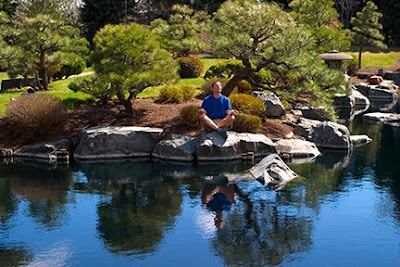 Love your neighbor as yourself. Do unto others as you would have them do unto you. Treat others as you wish to be treated. Bestow compassion on all individuals. The Golden Rule is considered to be the “golden standard” of human behavior; a lofty ideal, but hardly unreachable. There was a time, not long ago, where The Golden Rule was taught to all people, from all countries, all religions, all languages; taught by parents, taught by preachers, taught by wisdom keepers. There are many people today, particularly young people, who have never even heard of The Golden Rule. Today the Golden Rule has been replaced with the slogans: “Every man for himself,” “He or she who shouts loudest is right” and “It’s all about me!” Enter the age of narcissism. In light of the recent shootings in Tucson, AZ last weekend, human behavior, particularly uncivil behavior, is finally being questioned in the media (well, in some corners of the media). One person to champion the practice of The Golden Rule is British Theologian, Karen Armstrong. Karen is a recent recipient of the TED award. Her goal: to create a charter of compassion. Her reason; to move the global community out of despair and narcissism toward compassion and community building.
Love your neighbor as yourself. Do unto others as you would have them do unto you. Treat others as you wish to be treated. Bestow compassion on all individuals. The Golden Rule is considered to be the “golden standard” of human behavior; a lofty ideal, but hardly unreachable. There was a time, not long ago, where The Golden Rule was taught to all people, from all countries, all religions, all languages; taught by parents, taught by preachers, taught by wisdom keepers. There are many people today, particularly young people, who have never even heard of The Golden Rule. Today the Golden Rule has been replaced with the slogans: “Every man for himself,” “He or she who shouts loudest is right” and “It’s all about me!” Enter the age of narcissism. In light of the recent shootings in Tucson, AZ last weekend, human behavior, particularly uncivil behavior, is finally being questioned in the media (well, in some corners of the media). One person to champion the practice of The Golden Rule is British Theologian, Karen Armstrong. Karen is a recent recipient of the TED award. Her goal: to create a charter of compassion. Her reason; to move the global community out of despair and narcissism toward compassion and community building.
• Stress Tip For The Day:
As young children, our hearts are open to a loving world. As we mature into adulthood, we learn to close our hearts as a means of protection. Yet, that which protects in the short term fosters selfish and narcissistic behavior in the long term. Simply stated, it is ego that derails any effort to practice The Golden Rule. The stress tip for today is to reopen your heart and domesticate the ego. To do this effectively, you must first ask yourself what thoughts, perceptions, attitudes and beliefs (right or wrong) have narrowed the passage of compassion that streams from your heart space. Practicing The Golden Rule means taking the high road with human behavior. It means treating others with respect. Everyone! The first step when taking the high road is opening your heart.
• Links/Books/Movies Worth Noting:
Here are two links highlighting Karen Armstrong and her efforts to re-introduce The Golden Rule to Humanity.
http://www.npr.org/2011/01/10/132809627/concrete-ways-to-live-a-compassionate-life
http://www.ted.com/talks/karen_armstrong_makes_her_ted_prize_wish_the_charter_for_compassion.html
• Quote for the Day:
“Jesus said, love your enemies. He didn’t say don’t have any.” —Joseph Campbell
Photo of the Day:
Today’s photograph, a butterfly, is a symbol of transformation, rising above mediocrity to our highest human potential.
Brian Luke Seaward, Ph.D. is an internationally renowned expert in the fields of stress management, mind-body-spirit healing and stress and human spirituality. He is the author of over 10 books including the bestsellers, Stand Like Mountain, Flow Like Water, Stressed Is Desserts Spelled Backward, The Art of Calm, Quiet Mind, Fearless Heart and Managing Stress (6E). He can be reached through his website:www.brianlukeseaward.net
© Brian Luke Seaward, Ph.D.








